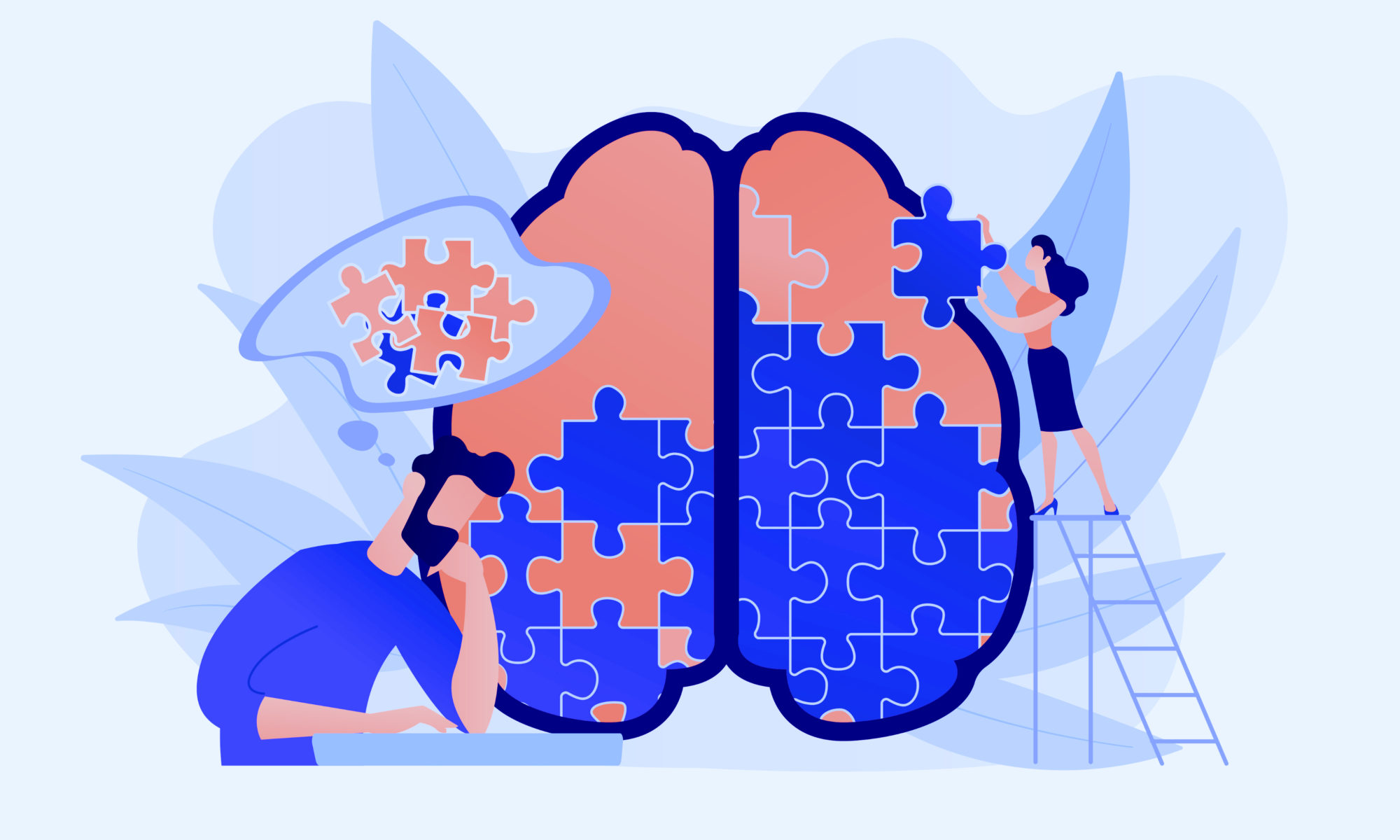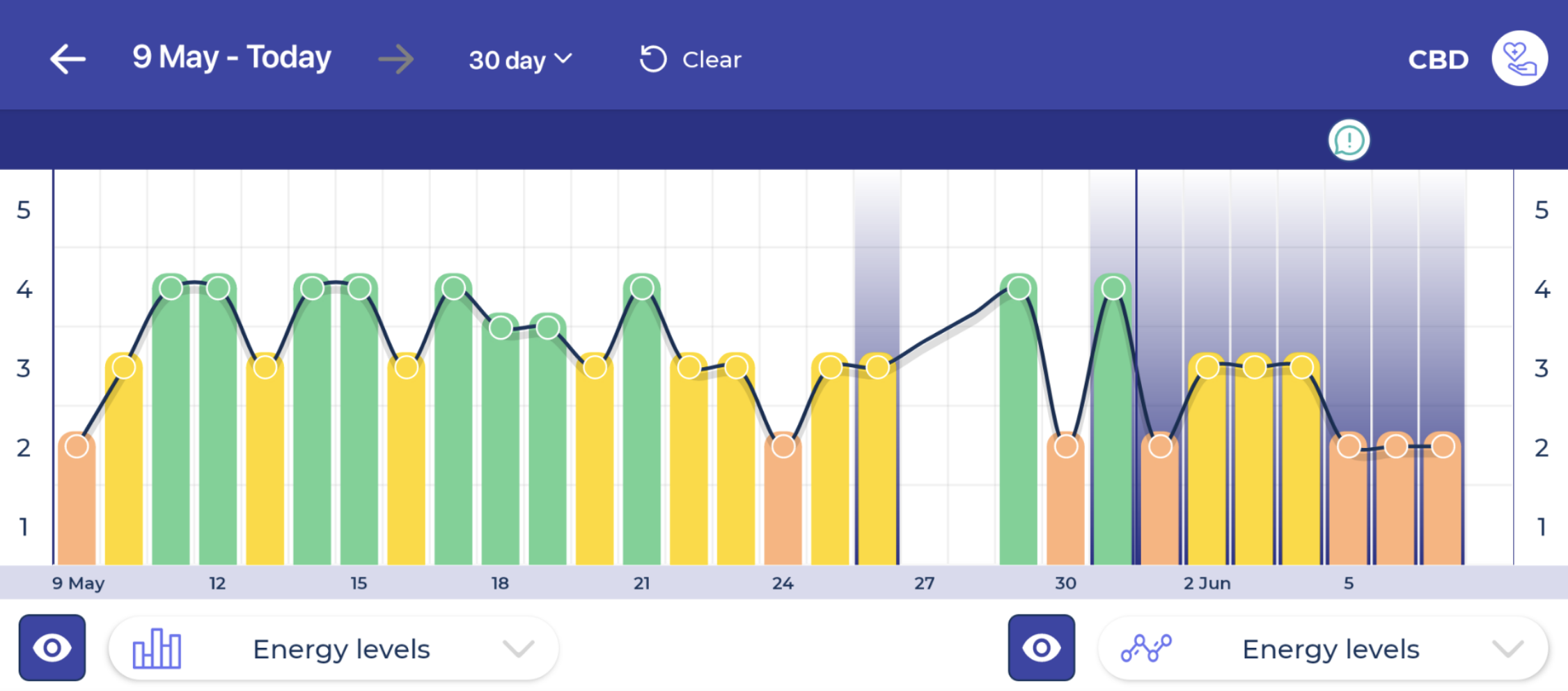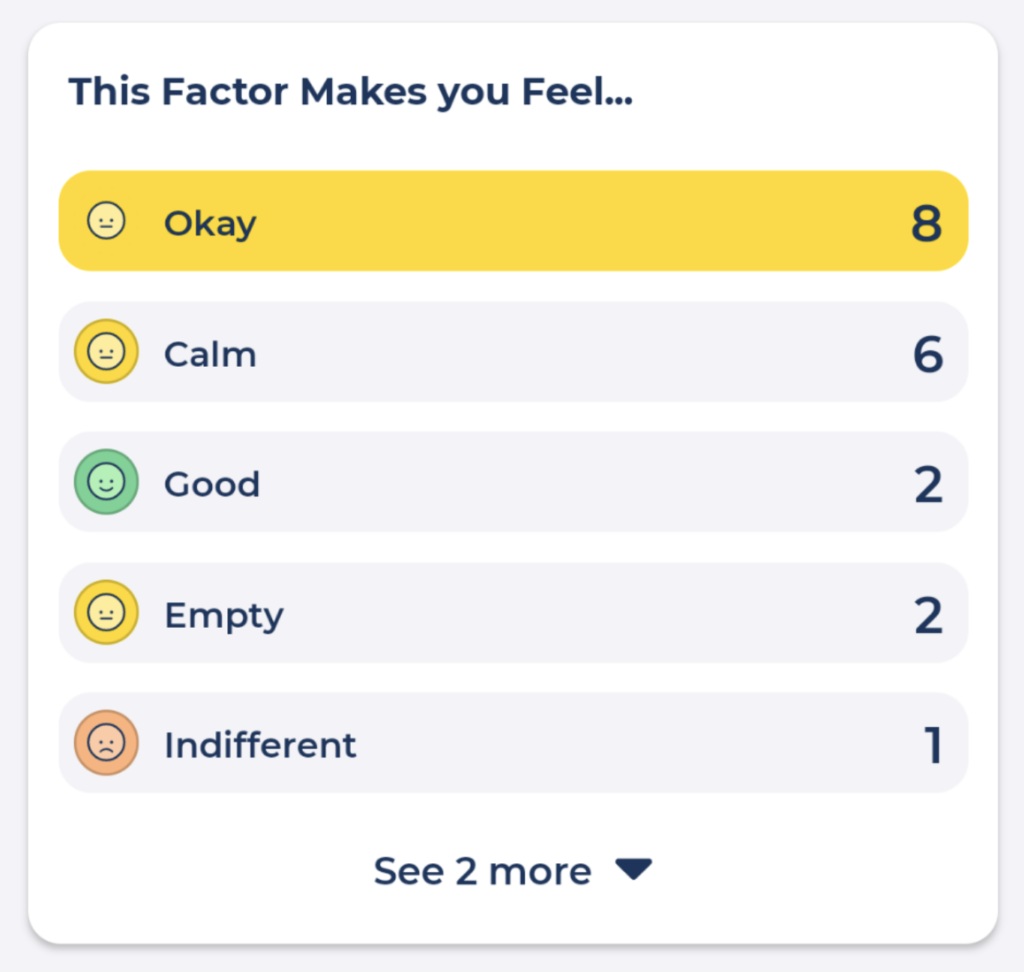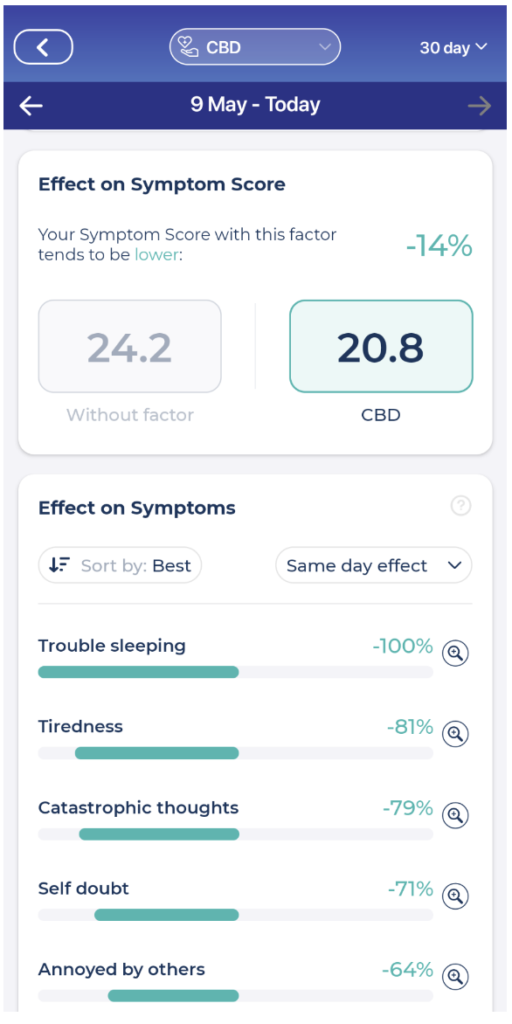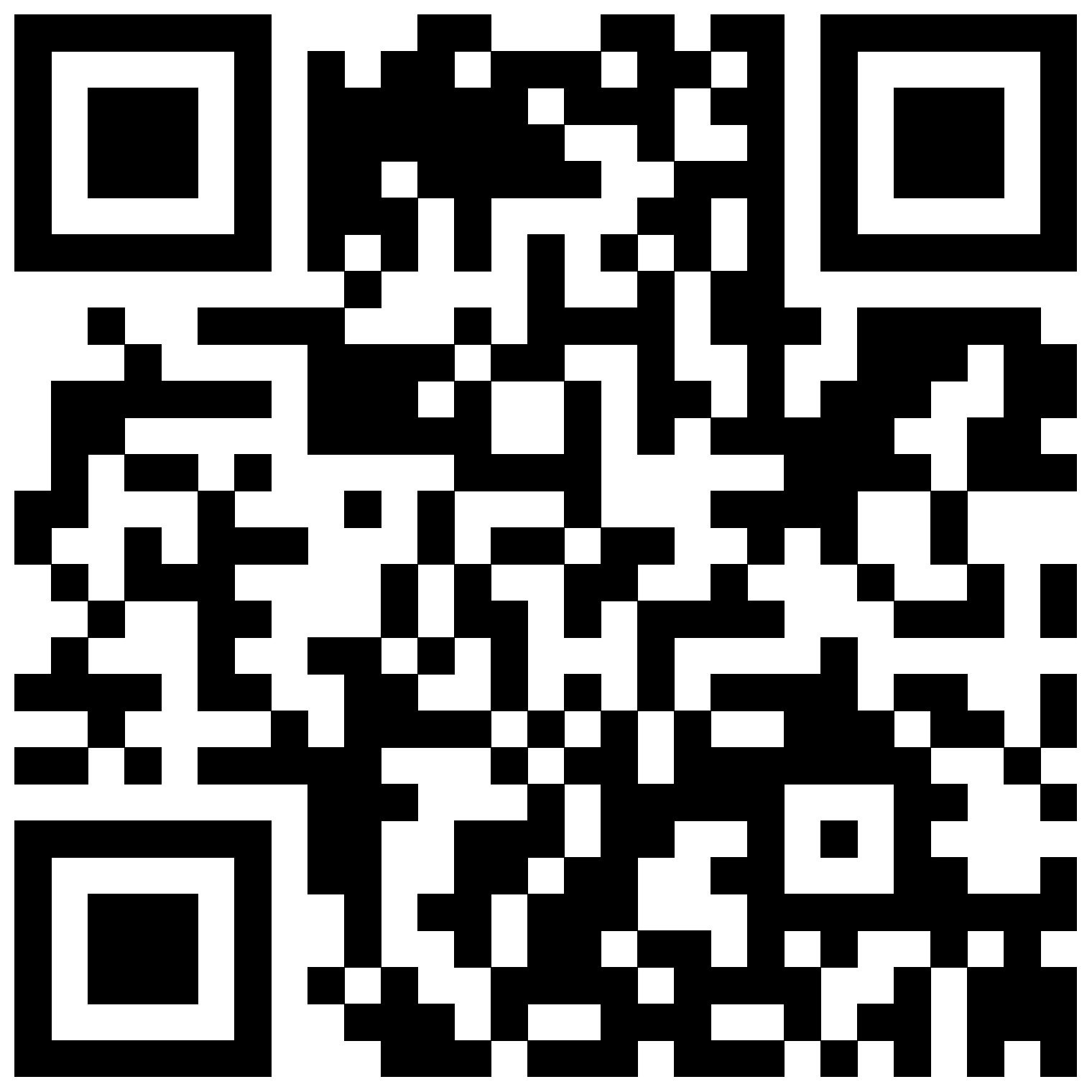Cognitive behavioural therapy, or CBT, is something that has been recommended to me over the course of the past 3 or 4 years. Often by people who know that I struggle with general anxiety disorder and depression.
It has become one of those go-to suggestions for well-meaning people, along with; mindfulness, meditation, breathing exercises, and exercise.
I’m guilty of turning my nose up at recommendations that come off as generic sound-bites. Phrases a person learned so they can say that they tried to help.
 An infographic of cognitive distortions from positivepsychology.com
An infographic of cognitive distortions from positivepsychology.com
 A chart from Bearable showing how CBT correlated with more hours of sleep (most of the time).
A chart from Bearable showing how CBT correlated with more hours of sleep (most of the time).
 A chart showing how CBT correlated with a positive impact on my energy levels
A chart showing how CBT correlated with a positive impact on my energy levels
 A chart showing how CBT correlated with a positive impact on a range of my symptoms
A chart showing how CBT correlated with a positive impact on a range of my symptoms
 A chart showing how CBT correlated with more feelings of Calm and Focus.
For me, CBT helped me to become more aware of my negative thoughts, helped me to make better sense of them, and helped me to challenge them. I came away from this experience with more practical solutions and a better understanding of my mental health.
I was able to recognise that a large percentage of my negative thoughts are related to how I’m perceived by others and especially my colleagues. I was also surprised by the fact that I often struggle with attaching significance to thoughts and feelings that are not based in reality. This helped to – no pun intended – give me a reality check about the nature of my negative thoughts and anxiety.
Since starting this experiment I’ve continued to use CBT to help combat my negative thoughts almost every day. Whilst it’s often stigmatized as being a tool reserved for people with mental health issues, I think it could genuinely help anyone that wants to find take more control over their health and wellbeing.
Good luck.
—
A chart showing how CBT correlated with more feelings of Calm and Focus.
For me, CBT helped me to become more aware of my negative thoughts, helped me to make better sense of them, and helped me to challenge them. I came away from this experience with more practical solutions and a better understanding of my mental health.
I was able to recognise that a large percentage of my negative thoughts are related to how I’m perceived by others and especially my colleagues. I was also surprised by the fact that I often struggle with attaching significance to thoughts and feelings that are not based in reality. This helped to – no pun intended – give me a reality check about the nature of my negative thoughts and anxiety.
Since starting this experiment I’ve continued to use CBT to help combat my negative thoughts almost every day. Whilst it’s often stigmatized as being a tool reserved for people with mental health issues, I think it could genuinely help anyone that wants to find take more control over their health and wellbeing.
Good luck.
—
“I know you’re depressed but have you tried getting out of bed and going for a nice long walk?”The annoying thing that I’ve learned – since deciding to swallow my pride more often – is that sometimes these suggestions are useful. The person suggesting that you get up and go for a walk is annoying because it dismisses how difficult that can be for a person in the midst of a crisis. Or who just has so little energy or motivation that they barely feed themselves. But let’s be honest, getting up and going for a walk can help. We just don’t need to hear it from someone that has zero experience with depression. So, having recently had a positive experience with many of these other generic recommendations. I had some hope that CBT might actually help too.
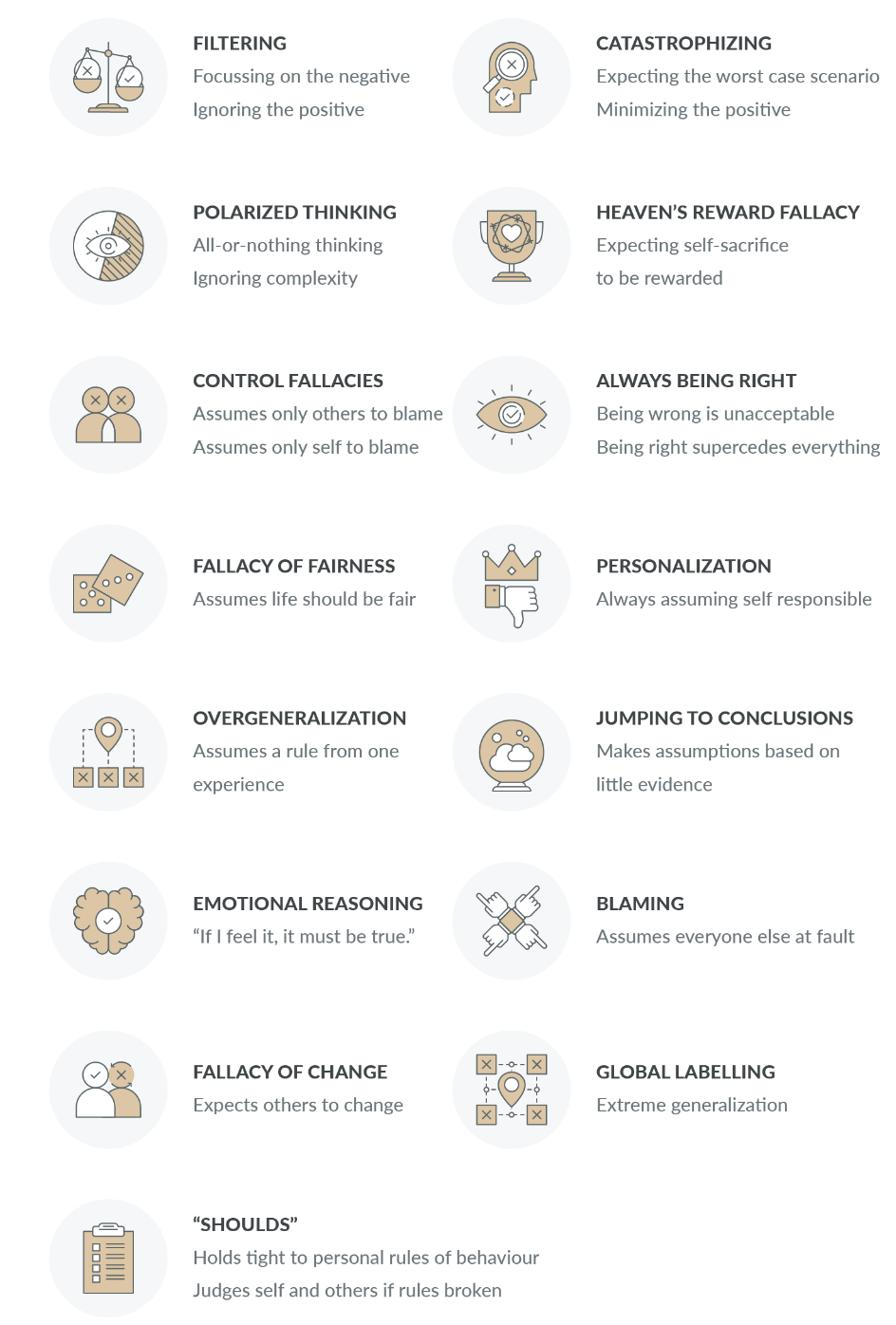 An infographic of cognitive distortions from positivepsychology.com
An infographic of cognitive distortions from positivepsychology.com
So what is CBT?
“Cognitive behavioural therapy (CBT) is a type of talking treatment which focuses on how your thoughts, beliefs and attitudes affect your feelings and behaviour, and teaches you coping skills for dealing with different problems. It combines cognitive therapy (examining the things you think) and behaviour therapy (examining the things you do).” – Mind.orgEssentially, CBT aims to help you recognise negative thought patterns, challenge them, and form more balanced and effective thought patterns or behaviours. Negative thought patterns are typically referred to as Cognitive Distortions and they fall into one of fifteen categories. I won’t write about them all here, but the ones that felt most familiar to me are:
-
- Filtering. Ignoring all of the positive and good things in life and focusing on negatives
- Catastrophizing. Expecting that the worst will happen or has happened
- The fallacy of fairness. Expecting that things in life should be fair.
- Heaven’s Reward Fallacy. Expecting that any sacrifice or self-denial will pay off.
-
- Write down the negative thought
- Identify all the cognitive distortions relevant to the thought
- Write down the reasons the thought might not be true
- Write down a new version of the original thought without the distortions (sometimes referred to as an alternative thought)
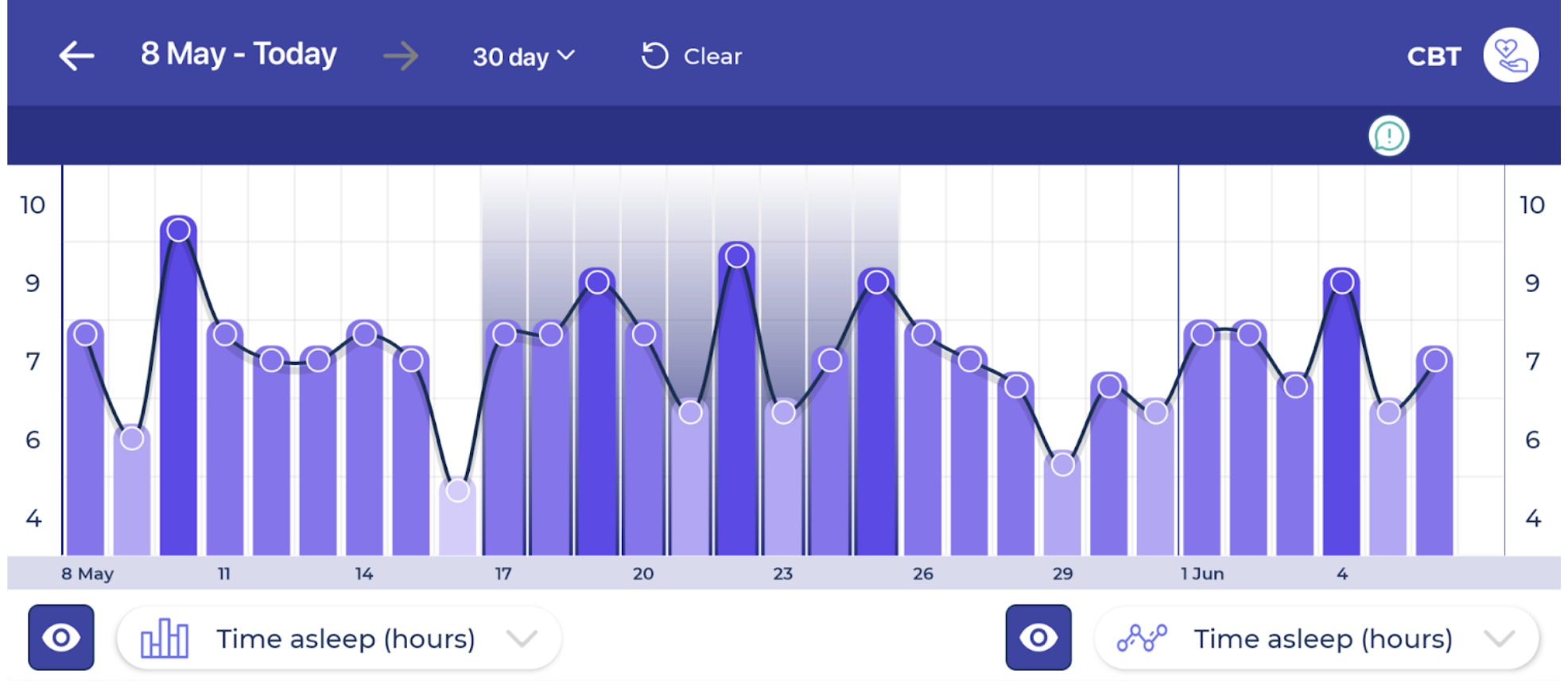 A chart from Bearable showing how CBT correlated with more hours of sleep (most of the time).
A chart from Bearable showing how CBT correlated with more hours of sleep (most of the time).
7 days of daily CBT sessions
From day one, the limitation was that I had to recognise when cognitive distortions were taking place in order for me to try to combat them. As many people reading this will know; negative thoughts can be such normal occurrences that they’re hard to spot before they begin spiralling. By journaling my thoughts as part of the practice of CBT, I actually became better at this. However, I often caught my negative thoughts a little too late. Day one: I woke after an anxiety dream and it was the perfect way to immediately test the impact of CBT. Writing down my thoughts helped me to recognise the cognitive distortions I was experiencing. Creating an alternative thought helped to ground me and acknowledge that my dream had no bearing on reality Day two: A common occurrence for me; I began feeling anxious about the contribution I was making at work and how this might be perceived by my colleagues. CBT helped me to recognise that these feelings were unfounded and that I often received positive feedback from colleagues. Day three: I was quick to assume that work undertaken by a colleague was a criticism of my own work. I spotted this early and recognised that I was focusing on negatives and jumping to conclusions based on past experiences. CBT helped me to spot that my colleague just wanted to collaborate on something he enjoyed being a part of. Day four: I woke up from another anxiety dream. This time about my dog. I felt that something terrible would happen that day as a result of the dream. CBT helped me to spot that my dream had no impact on reality and that I was thinking catastrophically. Not to mention blaming myself for something that hadn’t actually happened. Day five: I get anxious ahead of team calls and worry that I’ll say something dumb or that people will think I haven’t contributed anything. Using CBT before the call helped me to feel calmer and more focused by taking away some of this anxiety. Day six: Weekends are interesting because I often spiral – at least during the pandemic – because I feel I’m not contributing towards something productive. CBT helped me to recognise that I needed to find a better work-life balance. I ended up signing up for some online classes. Day seven: I usually spend Sunday morning’s reading the news and scrolling social media and it can lead to me feeling a bit hopeless or frustrated with the world. CBT helped me to recognise I was focusing on negatives and overgeneralizing.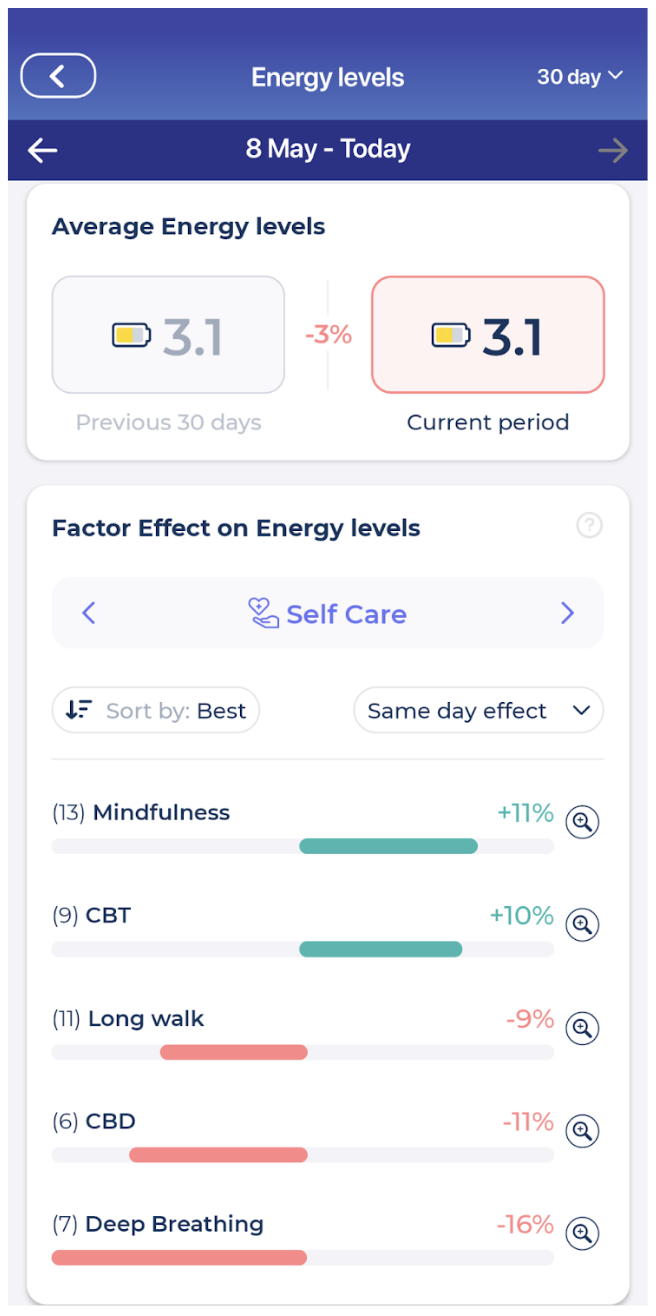 A chart showing how CBT correlated with a positive impact on my energy levels
A chart showing how CBT correlated with a positive impact on my energy levels
What did the data in Bearable show me about the effect of CBT?
Average Mood improved by 1% Average Energy Levels improved by 10% Sleep Quality improved by 8% Sleep Quantity improved by 9% Total Symptom Score worsened by 7%What impact did CBT have on my specific symptoms?
Feeling worried improved by 37% Binge eating improved by 33% Insomnia improved by 31% Apathy improved by 9% Irritability improved by 8% Catastrophic thoughts improved by 2% Doubting value of contribution improved by 6% Tired during the day worsened by 114% Restlessness worsened by 82% Being Self Critical worsened by 36% Worry about appearance worsened by 18% Behaviours associated with nervous energy worsened by 10%How did I feel CBT had impacted the symptoms of my anxiety and depression?
Overall, I don’t think it had a huge impact on the symptoms themselves. I still experienced all of the same symptoms that I would typically. Avoiding people, feeling self-conscious, feeling judged, fearing negative outcomes, feeling nervous, feeling apathetic, etc. In fact, because of the reflective nature of CBT, I became a little more self-critical and self-conscious about some of my frequent symptoms and behaviours. CBT helped me to sleep better but also wake earlier, giving me more time in the mornings to dredge up negative thoughts at the start of the day. I think this may have led to an increase in nervous energy, restlessness, and negative thoughts about my appearance. However, CBT did help me to combat my symptoms once they arose. I felt generally less worried, more focused, calmer, my sleep improved, my energy improved, I was less irritable, and I was more productive. Essentially, CBT gave me the means to begin combatting thoughts that would normally spiral out of control. The reflective nature of CBT also helped me to come up with more practical and constructive plans to tackle some of my common symptoms. Things like:-
- Structuring my work
- Being more transparent about my work schedule
- Scheduling breaks in the day
- Preparing for meetings
- Keeping a record of achievements and lessons learned
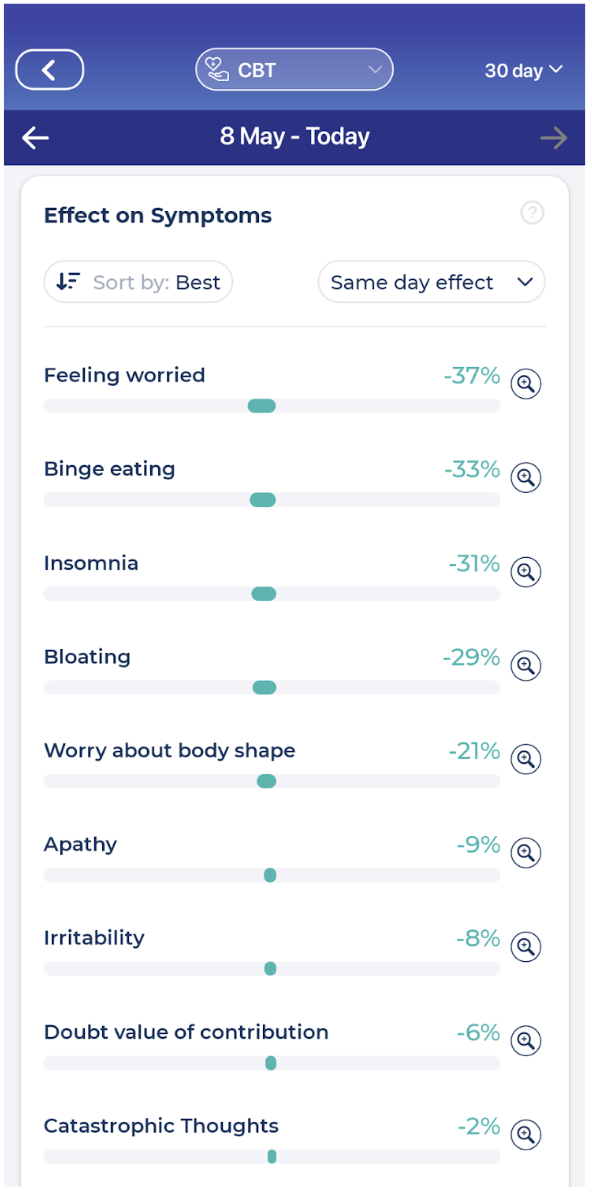 A chart showing how CBT correlated with a positive impact on a range of my symptoms
A chart showing how CBT correlated with a positive impact on a range of my symptoms
Should you try CBT?
Yes. Dedicating some time each day for self-reflection and journaling truly helped me to feel more in control of my mental health. If CBT feels too big of a leap, these activities by themselves might be a more accessible starting point. If you struggle with mild symptoms of depression and anxiety and want to see if CBT can help you to manage them better; I think doing some research and downloading an app is a good place to start. If you have more severe symptoms of chronic mental health conditions; I’d recommend speaking to a medical professional to see if you can undertake CBT with a therapist. I imagine that it’s more effective this way and will provide a safer environment in which to explore some of your negative thoughts. Generally speaking, at Bearable, we recommend consulting with a medical professional anyway. As I’ve found with these experiments into self-care techniques, they often have unexpected results. Whilst they can help to ease symptoms they can also drag up negative thoughts and experiences. So proceed with caution and get some professional advice if you can.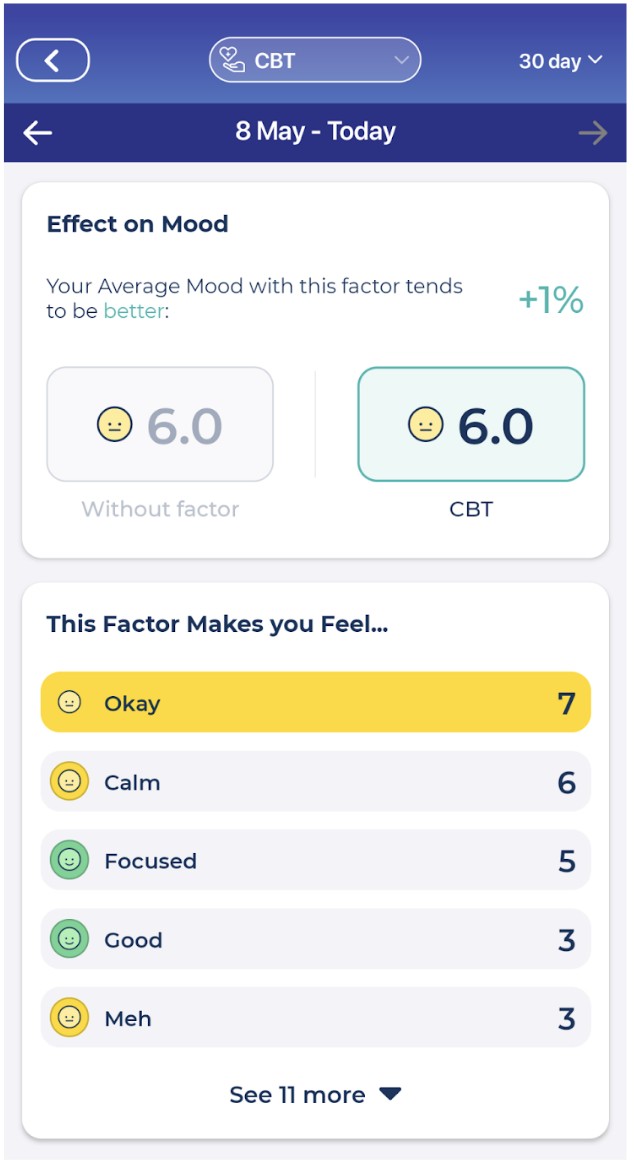 A chart showing how CBT correlated with more feelings of Calm and Focus.
For me, CBT helped me to become more aware of my negative thoughts, helped me to make better sense of them, and helped me to challenge them. I came away from this experience with more practical solutions and a better understanding of my mental health.
I was able to recognise that a large percentage of my negative thoughts are related to how I’m perceived by others and especially my colleagues. I was also surprised by the fact that I often struggle with attaching significance to thoughts and feelings that are not based in reality. This helped to – no pun intended – give me a reality check about the nature of my negative thoughts and anxiety.
Since starting this experiment I’ve continued to use CBT to help combat my negative thoughts almost every day. Whilst it’s often stigmatized as being a tool reserved for people with mental health issues, I think it could genuinely help anyone that wants to find take more control over their health and wellbeing.
Good luck.
—
A chart showing how CBT correlated with more feelings of Calm and Focus.
For me, CBT helped me to become more aware of my negative thoughts, helped me to make better sense of them, and helped me to challenge them. I came away from this experience with more practical solutions and a better understanding of my mental health.
I was able to recognise that a large percentage of my negative thoughts are related to how I’m perceived by others and especially my colleagues. I was also surprised by the fact that I often struggle with attaching significance to thoughts and feelings that are not based in reality. This helped to – no pun intended – give me a reality check about the nature of my negative thoughts and anxiety.
Since starting this experiment I’ve continued to use CBT to help combat my negative thoughts almost every day. Whilst it’s often stigmatized as being a tool reserved for people with mental health issues, I think it could genuinely help anyone that wants to find take more control over their health and wellbeing.
Good luck.
—

